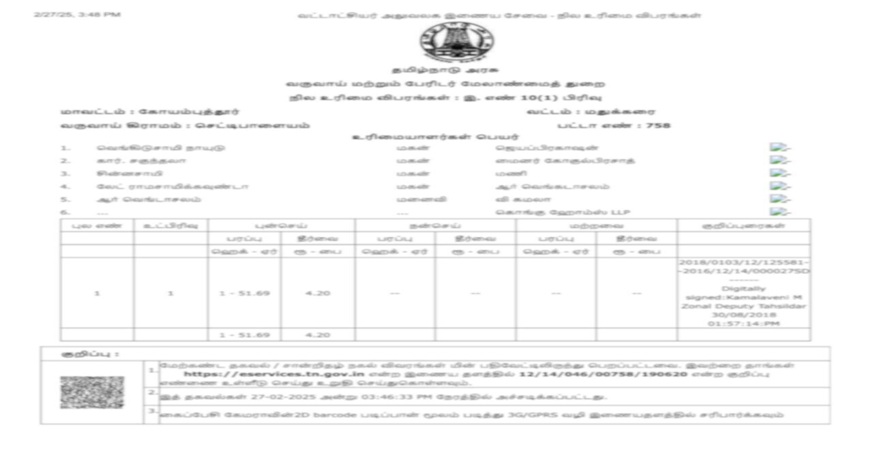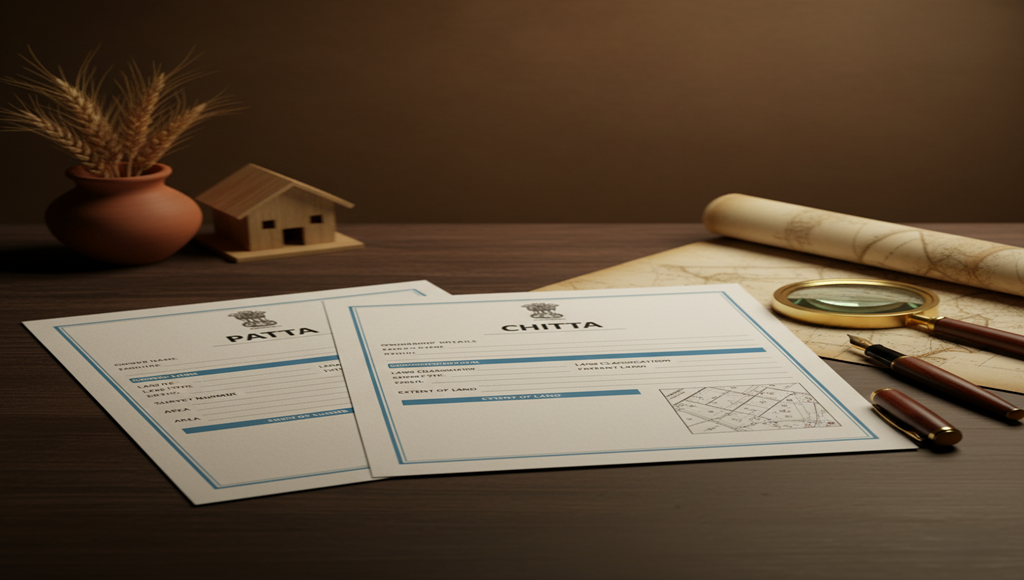What is ROR in Gujarat?
The ROR (Record of Rights) is an official land record that details the rights of landholders. It typically includes information such as:
- Owner’s name
- Survey number
- Khata number
- Type of land (agricultural/non-agricultural)
This document is essential for ROR land verification, mutation, and proving ownership in legal disputes. The ROR Gujarat land record is managed by the Revenue Department for property verification and ownership validation.
Importance of ROR in Gujarat
- Proof of Land Ownership
Establishes legal rights over a parcel of land in Gujarat ROR records maintained by the Revenue Department. - Needed for Mutation & Land Transfers
Required during sale, gift, partition, or inheritance of land. - Used for Bank Loans
Banks and financial institutions demand ROR documents in Gujarat for loan eligibility verification. - Helps in Land Dispute Resolution
Acts as strong legal evidence in civil, revenue, and tenancy-related cases. - Supports Agricultural Subsidy & Benefits
Farmers must submit ROR to access crop loans, subsidies, and insurance. - Required for Land Conversion (NA Permission)
If you’re converting agricultural land to non-agricultural use, ROR Gujarat record is mandatory. - Used in Land Record
Government departments use ROR Gujarat 7/12 equivalent during land acquisition or compensation processes. - Ensures Transparency in Land Deals
Buyers can check ownership and encumbrances before purchasing agricultural land in Gujarat using ROR verification. - Essential for Development Approvals
Needed when applying for layout or construction approvals in rural Gujarat land records.
How to Check ROR Online in Gujarat?
You can check ROR via mypatta without visiting the Revenue office.
Steps to Download ROR Online
- Open mypatta and log in or sign up if needed.
- Go to property documents, ensure “Gujarat” is selected as the state, then tap the “ROR” icon.
- Enter Search type ,District ,Taluka ,Village,Survey number details
- Tap “Search”
- Once ROR is available to download, tap “View Document”. You can now save or share or download this document in PDF on your device.
Difference Between Certified Copy and ROR in Gujarat
In Gujarat, a Certified Copy and Record of Rights (ROR) serve different purposes in property documentation. A Certified Copy is an officially attested duplicate of a registered document like a Sale Deed, issued by the Sub-Registrar Office. It proves that a property transaction was legally registered and is used in legal proceedings, loan applications, or when original documents are lost. On the other hand, the Record of Rights (ROR) is a revenue document issued by the Revenue Department that contains ownership details, land use, cultivator name, and tenancy information. While the Certified Copy focuses on ownership transfer through registration, the ROR reflects the current landholder’s legal and agricultural rights in the government records. Both are important, but serve different legal and administrative needs.
Frequently Asked Questions (FAQs)
1.Can a single ROR include multiple properties?
Yes, a single ROR Gujarat entry can include details of multiple properties owned by an individual within the same survey or area.
2.What is the role of the ROR in inheritance cases?
In inheritance cases, the ROR Gujarat document helps establish legal succession and ensures smooth transfer of ownership to heirs.
3.Can the ROR be used to verify historical ownership of land?
Yes, the ROR maintains a record of ownership history, which can be used to trace past ownership and verify the property’s legal lineage.
4.Is the ROR required for joint property ownership?
Yes, the ROR for joint property will reflect the names of all co-owners, their respective shares, and other relevant details.
5.Can I use ROR for land purchase verification?
Absolutely. Before buying land, checking the ROR online helps verify the seller’s ownership and legal status of the land.
Key Takeaway
- The ROR (Record of Rights) in Gujarat is a vital document for landowners and buyers.
- It provides official proof of land ownership and related rights.
- With mypatta, you can easily check and download ROR land records online in just a few clicks.
- You can integrate ROR records with other property documents for a seamless property management experience.
Other Blogs Link
1.https://mypatta.in/blog/property-card-in-gujarat-how-to-download-it-onlineits-purpose-faqs/
2.https://mypatta.in/blog/certified-copy-in-gujarat-how-to-download-it-online-its-purpose-and-faqs/


